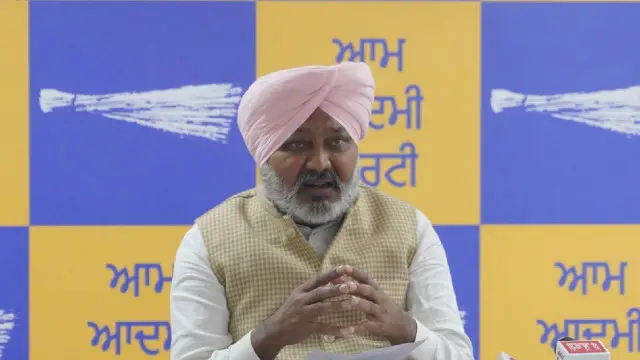From Uncertainty to Reliability: What the Electricity Amendment Bill Really Offers Farmers
For India’s farmers, this could be the difference between uncertainty and empowerment, between dependency and dignity.

New Delhi: India’s power sector has long struggled with mounting subsidies, rising losses, and deep inefficiencies. In this system, farmers have often found themselves in a paradox—receiving subsidised tariffs on paper, but suffering from poor supply quality, erratic timings, and unreliable infrastructure.
The Electricity (Amendment) Bill seeks to break this cycle. While some farmer groups fear tariff hikes and corporatisation, the Bill’s actual provisions tell a very different story—one that offers farmers greater reliability, stronger protections, and more transparent subsidies.
At its heart, the Bill is a reform for sustainability—and farmers stand to gain the most.
1. A Path to Reliable, Predictable Power Supply for Agriculture
For years, rural India’s biggest electricity challenge has not been tariff levels—it has been unreliable supply.
Farmers across states routinely face:
Midnight or early-morning supply, voltage drops, frequent motor burnouts, damaged pumps, inconsistent three-phase power.
The core reason is clear: DISCOMs are financially stretched, often unable to maintain networks or ensure stable supply.
How the Bill helps:
By strengthening governance, ensuring timely subsidy payments, and improving financial stability, the Bill gives DISCOMs the breathing space needed to:
Upgrade rural feeders, improve voltage regulation, reduce outages, supply power at predictable, farmer-friendly hours.
Better finances mean better service—and farmers feel the benefit first.
2. Subsidies Strengthened, Not Removed
A major misconception is that the Bill removes subsidies. It does not.
Instead, it introduces a more transparent, accountable method of providing them.
Rather than embedding subsidies inside tariffs, States will directly transfer the subsidy amount to DISCOMs.
Why this is good for farmers:
States must honour subsidy commitments on time.
DISCOMs will not be forced into financial distress.
Farmers will not face outages due to unpaid state dues.
Subsidies become a guaranteed entitlement, not a political promise.
For farmers, this means stability—not uncertainty.
3. Competition Without Privatisation
Some fear that competition in electricity distribution equals privatisation.
The Bill clearly does not mandate the selling of state assets.
What competition really means:
Multiple service providers can operate,
Performance is benchmarked, reliability improves, customers—especially farmers—gain more power to demand service standards.
Farmer interests lie not in who supplies electricity, but how reliable, affordable, and timely the supply is. The current monopoly has not delivered this consistently.
Competition can.
4. Why Opposition Is Natural—But the Bill Still Offers More
Farmer unions carry memories of past policy shocks and worry about hidden tariff escalations. Their concerns should be respected.
However, rejecting the Bill entirely keeps farmers trapped in the same unreliable, deteriorating system.
Reform is essential—and this Bill provides a foundation for transparent subsidies, improved infrastructure, and guaranteed service standards.
5. What Farmers Should Demand to Strengthen the Bill
Instead of opposing reform wholesale, farmer organisations can focus on securing key guarantees within the Bill:
1. Legally enforced, uninterrupted agricultural subsidies
2. Minimum assured hours of agricultural power supply
3. Penalties and compensation for voltage fluctuations and pump damage
4. Transparent grievance redressal mechanisms
5. Time-bound commitments for rural network modernisation
These measures are practical, enforceable, and pro-farmer.
They turn the Bill into a charter of rights and protections for rural consumers.
The Bottom Line: A Chance for Real Empowerment
The status quo has failed farmers—poor supply, unpredictable hours, deteriorating infrastructure, and constant uncertainty.
The Electricity Amendment Bill offers a way forward.
If implemented with safeguards and accountability, it can deliver:
More reliable power, transparent subsidies, reduced downtime, lower equipment damage, a responsive, accountable distribution system.
This is not a step towards burdening farmers—it is a step toward empowering them.
The true opportunity lies not in rejecting the Bill, but in shaping it so it becomes a powerful tool of rural transformation.
For India’s farmers, this could be the difference between uncertainty and empowerment, between dependency and dignity.












